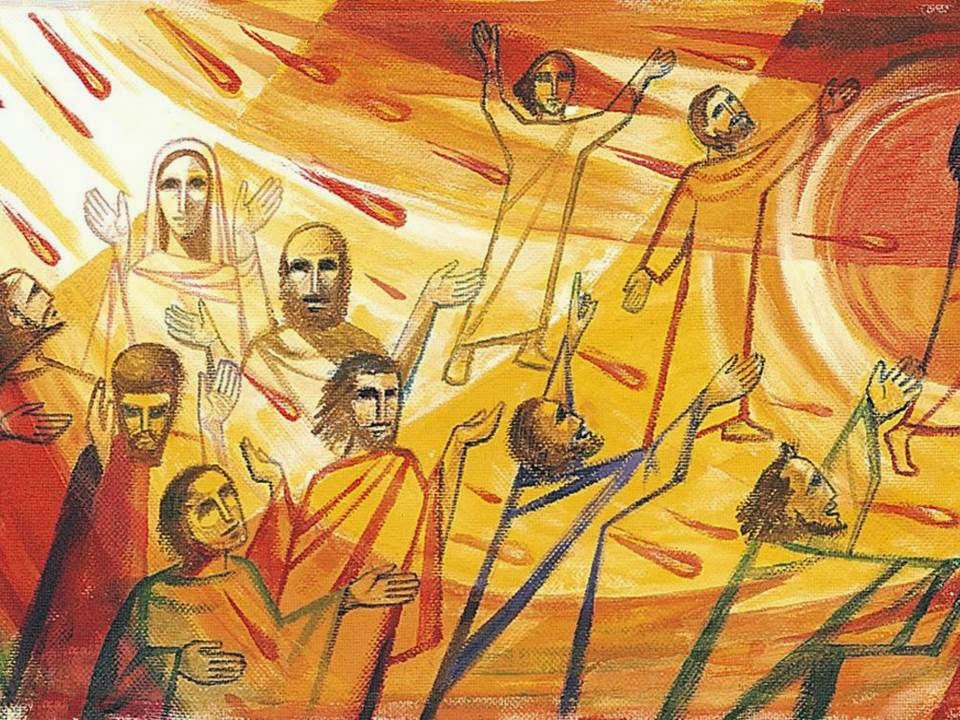Asking if Pentecost leads to democracy might sound like an odd question. But I really want to ask whether Christianity has a particular political-social form. In other words, is Christianity particularly suited for (or the cause of) Western Liberalism?
Or, does the Spirit that animates Pentecost also animate democracy?
Pentecost and Equality
Some see Pentecost, with the outpouring of the Spirit on all people, as initiating a radical equality, an equality that Paul later understands as abolishing all divisions between class, race, and gender (Gal. 3:28—see my podcast about this).
Is not the “priesthood of all believers” the beginning of the democratic ideal? Indeed, Walter Rauschenbusch, the father of the social gospel, positively linked the ancient practices of Israel, Pentecost, and democracy as a progression leading from oppressive hierarchy to liberative equality.
Pentecost and Uniformity
Others, however, don’t think Pentecost leads to our contemporary practice of democracy. These people see democracy as a reductive, minimal uniformity of “one person = one vote”. This reduction of the person whitewashes true diversity by affirming individual, personal interests through anonymity (which literally means “namelessness”). All true diversity —cultural and communal identity—is suspended within vicious calculus of “electability” and the black box of the voting booth
Pentecost and Leadership
Still others say democracy isn’t so much about equality or uniformity. They claim that democracy’s primary function is negative. It distributes power as broadly as possible in order to protect against an abusive hierarchy. The choice in this view is between democracy and dictatorship.
(If you are interested in how evangelicalism forgot its original integration of spiritual revival and social reform, then download the short ebook on “The Scandal of the Evangelical Memory.”)
None of the Above (kinda…)
I would say that Pentecost certainly does promote equality in a way never known beforehand. It is revolutionary—religiously and politically—that all would have access to God through the Spirit, and that all would minister the presence and power of God to everyone else. This distribution of power and access—flowing to and from God—changes EVERYTHING!
And I would also say that Pentecost protects against bland uniformity, and should in fact work against it. All those present on the Day of Pentecost heard in their own language—NOT some spiritualized common language. Pentecost is an affirmation of differences, even while affirming unity in salvation through Christ and gifting in the Spirit.
And I would say that the leadership of Pentecost is neither a hierarchical-dictatorship of decisions nor a flat-democracy of discussions. Leadership in the church is a Spirit-led discernment—in other words, the community comes together to be led by Christ through the Spirit.
Pentecost as Pneumatocracy
So, does Pentecost lead to democracy? Maybe. Accidentally.
But the true social-political form of the church is a Pneumatocracy—where the Spirit leads the church in the way of Jesus.
And this mean the church is very undemocratic because it is holds to an intolerant statement. Democracy prides itself as a political-social form that requires no dogmatic statements—it attempts to be perfectly tolerant of all views. Which is fine and good (if in fact is actually does that, which is up for debate).
But the church emphatically declares—in the power of the Spirit—that “Jesus is Lord.” Peter declares to the crowd that gathers, “Everyone who calls on the name of the Lord will be saved” (Acts 2:21).
For those committed to the spirit of democracy, this exclusionary claim of salvation coming only from the Lord, not the state, not democracy, not capitalism, not socialism is both provocative and dangerous (see this from those who would declare that Jesus is the “Lord of Peace” and not nuclear weapon).
If the church—as individuals and corporately—focused on living in the power of the Spirit on way of Jesus I’m sure the ills of our democracy (whatever you think they might be) would be worked out.


One reply on “Does Pentecost lead to democracy?”
[…] Does Pentecost lead to democracy? […]